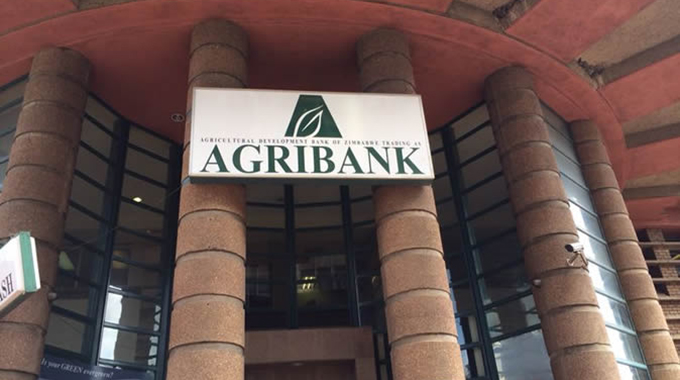
Senior Business Reporter
State agriculture finance institution, Agribank, expects its 2020 income to decline on reduced customer activities due to the negative impact of the Covid-19 global pandemic that has paralysed world economies and disrupted supply chains.
This comes after the national agriculture support bank romped to a $33 million historical after tax profit, which helped maintain its profitability streak that saw it declare $5 million dividend, a rare occurrence among state enterprises in Zimbabwe.
The bank said its profit for the year was mainly driven by growth in non-interest income as well as interest income, reflecting increased transactions on the ICT delivery channels and electronic banking.
Agribank said although its 2020 income was projected to take a hit due to the negative effect of the viral disease, the bright side of things was the fact that it had no exposure to the tourism industry, the economic sector hit hardest by Covid-19 in all countries across the world.
Covid-19, which has killed over 200 000 and infected more than 3 million globally, pandemic has led many countries to implement lock downs for periods in excess of three weeks in order to contain the spread of the disease.
As such, acting chief executive Elfas Chimbera said the pandemic will have far-reaching macro and micro economic effects across the entire globe, including Zimbabwe.
Mr Chimbera also took time to reflect on former chief executive Sam Malaba whom he showered with glowing praise for stewarding the bank over decades of stellar growth and support to the country’s agriculture.
Many countries closed their borders, that constricts the flow of exports, and imports and will have a direct impact on business growth, employment and income.
As the domestic economy deteriorates in the aftermath of the Covid-19 pandemic, the bank said it will not be spared from the effects of the pandemic.
“The bank will feel the impact of both the direct and indirect effects of the pandemic in its 2020 financial years as well as the ensuing years.
“At this stage the bank is however unable to quantify the impact of the pandemic on its performance.
“As already alluded to, most companies, including our customers are shut due to Covid-19, and this will adversely affect their financial performance as well as their ability to service their loans.
“Consequently, the bank’s income may decline due to lower customer activity and own scale down initiatives to manage the impact to staff as well as other fixed costs that will weigh heavily on the bank with less revenue generation,” he said.
As at 31 December 2019, Agribank’s biggest exposure was to individuals at 45 percent followed by the agricultural sector that had 37 percent. We did not have exposure to the tourism sector as at 31 December 2019”, Mr Chimbera said.
The exposure to agriculture is mainly concentrated on tobacco value chains to merchants, smallholder farmers and contract growing.
The main export market of Zimbabwe is China. The opening of tobacco auction floors was delayed due to the impact of Covid-19 with the attendant lockdown as per Government directive.
The bank expects its customers to sell their tobacco produce during the coming selling season.
“China, the major buyer of Zimbabwe tobacco, and once the epicentre of the Covid-19 pandemic is now re-opening factories and shops and we expect an improvement in its business and economic activity,” he said.
In the 2020 budget, the shareholder set aside $64 million for capitalisation of the bank. Agribank said this continued support from the shareholder was appreciated.
The Reserve Bank of Zimbabwe reviewed upwards the minimum capital threshold for tier 1 banks to the Zimbabwe dollar equivalent of US$30 million by December 31, 2020 to ensure continued stability and soundness of the financial services sector.
“The bank will work towards achieving the new minimum capital requirement and ensure that it remains a tier 1 bank. The bank’s tier 1 capital as at 31 December 2019 was $170 million,” Mr Chimbera said.
He also said gross loans and advances were $287 million representing a 95 percent increase from $147 million achieved in 2018.
The increase was because of increased agriculture lending as the bank expanded agricultural financing interventions during the year. The loan to deposit ratio for the year was 51 percent compared to 85 percent for 2018.
A significant part of the agriculture loan book growth came from smart agriculture programmes for the 2019/20 agriculture season.
The bank came up with supportive structures to finance seed houses and fertiliser manufacturers in an endeavour to ensure adequate supply of critical inputs to farmers under the smart agriculture programmes
After raising $40 million, through agro-bills, towards supporting agricultural activities, the bank is targeting $100 million for the 2020/21 farming season.
Last year, Agribank saw its asset base grow nearly 400 percent, amid inflationary conditions, to just about $1,5 billion.
The bank said it was still in the process of seeking a strategic partner who will inject additional financial resource to grow its capacity in line with its agriculture mandate.
